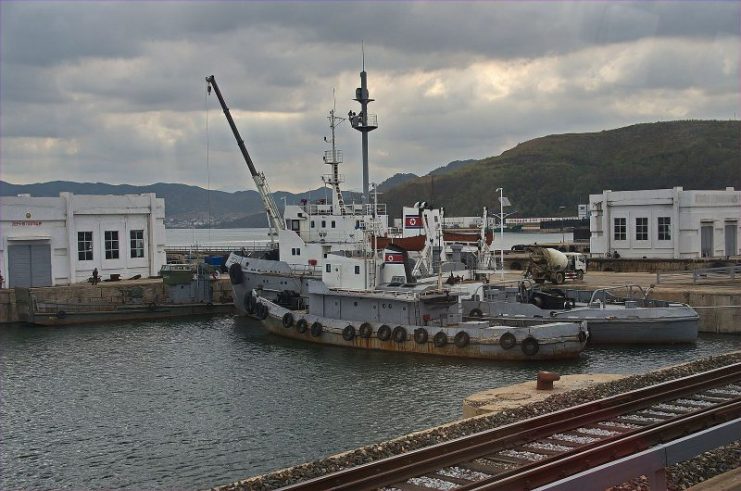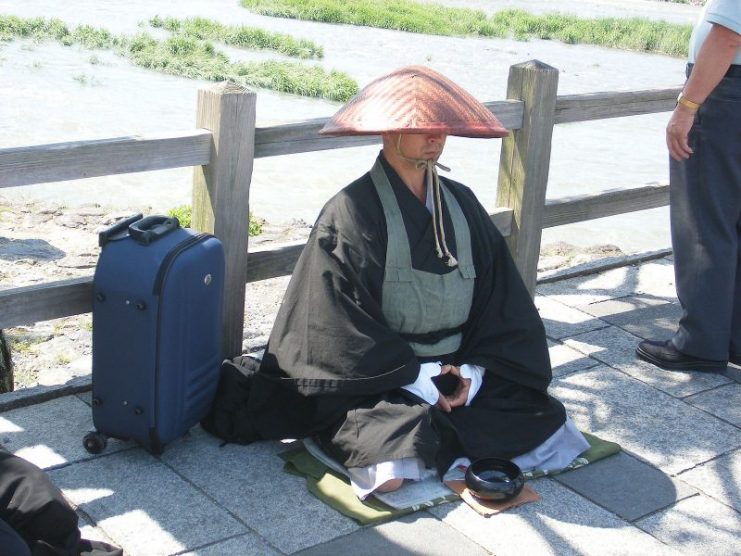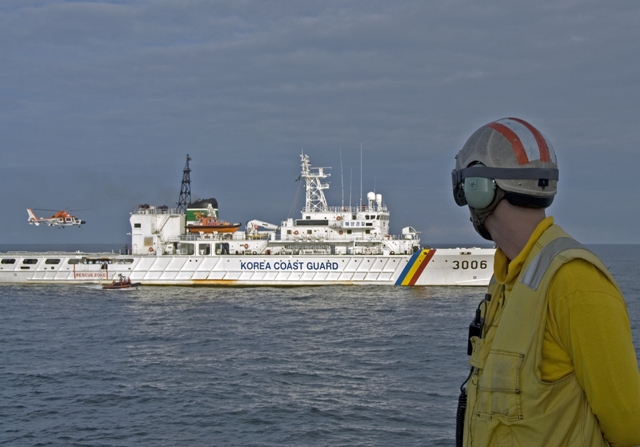Recently, Japan has seen a number of North Korean commercial fishing vessels along the one thousand mile long west coast of Japan that have been floating for months with no crews. These barges of the dead usually wash ashore containing skeletal remains or mostly decomposed bodies. During the year 2017, twenty-eight ships have washed up with eighteen total number of dead bodies found aboard. Forty-two men have been found alive.
For the past several years North Korean fisherman have seen their annual catch requirements skyrocket causing them to sail closer to Japan to meet their objectives. Additionally, North Korean fishing rights in the Yellow Sea have been sold to Chinese fisherman making it even more difficult for the North Koreans to find suitable fishing spots.
North Korean leader, Kim Jong-un has demanded that his people begin fishing in the Sea of Japan. According to Toshimitsu Shigemura, professor emeritus of Waseda University, “Fishermen are desperate to meet annual catch goals, which are elevated to higher levels every year.”

Satoru Miyamoto, a professor at Seigakuin University claims, “It’s after Kim Jong Un decided to expand the fisheries industry as a way of increasing revenue for the military. They are using old boats manned by the military, by people who have no knowledge about fishing. It will continue.”
If the North Koreans had modern boats, it would not be such a problem. Unfortunately, most fishermen have older and less sturdy boats with smaller fuel capacities. The rickety wooden boats held together by tar are often torn apart when the Sea of Japan becomes a sea of fury in autumn due to high winds from the northwest. Torn North Korean flags, Korean language writings, and personal effects allow the boats to be identified as such.

Some ships are found partially submerged with the former occupants’ bodies and possessions washing ashore and making their way into rivers. The humane disposals of the corpses have put a financial strain on the small seaside villages and the local environmental ministry. According to custom the remains are cremated and sent to Buddhist temples. The Buddhist monks state, “They’re being held no differently than the other ashes. In death, we treat everyone the same.”
To make matters worse, some of these fishing boats are accused of being spy ships. With food shortages, poor sanitary conditions and parasites due to the use of human waste for fertilizer as well as the lack of proper medical treatment for both civilians and the military, others are suspected of being North Korean defectors.

Sadly, there are ships sent to steal high-end Japanese goods to sell in North Korea. Ships suspected of theft are investigated by the Japanese Coast Guard with the possible punishment of execution as their fate. In November of 2017, a North Korean boat was found off the coast of the Japanese island of Hokkaido. The ten-man crew was seen dumping a refrigerator, television, power generator and a motorbike over the side. Enough of the loot was recovered to cause the Coast Guard in Japan to detain the men for questioning.
Food shortages in North Korea have led to rationing with three hundred grams of food per day for each person. The 2017 growing season saw drought conditions with sufficient rainfall coming only after August, too late to help the crops. Combined with the 2001 drought, food levels in North Korea are dangerously low. Stemming from an incident at the Panama Canal in 2013 when a North Korean cargo vessel was found smuggling over two hundred tons of weapons hidden by thousands of pounds of raw sugar through the Panama Canal; a United Nations ruling on the North Korean government prohibits the import of foodstuffs among other badly needed goods.
